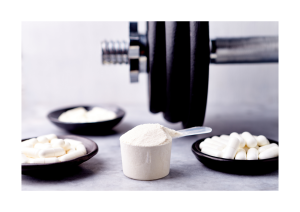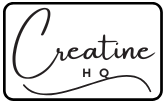Selecting the Optimal Creatine Form for Men Aged 50 and Above: Which Variant, When, and Why

For men surpassing 50 years of age, maintaining vigor, mental acuity, and vitality becomes increasingly crucial yet more demanding. Whether you aim to sustain muscle mass, regain lost strength, or safeguard cognitive well-being, creatine stands out as a extensively researched and efficacious supplement. Nevertheless, the array of creatine forms available makes it challenging to determine the most suitable option corresponding to your age, workout status, or health aspirations.
This piece delves into the scientific rationale and practical guidance concerning the diverse forms of creatine, aiding you in making an informed choice tailored to your body, intellect, and routine post the age of 50.
Creatine Monohydrate: The Esteemed Standard
As the most scrutinized and widely endorsed creatine variant, creatine monohydrate upholds its reputation as the gold standard for valid reasons. It consistently showcases enhancements in muscle mass, strength, power output, and cognitive function among older individuals.
Operating by saturating your muscles with phosphocreatine, it facilitates the rapid regeneration of ATP (your muscle’s energy reserve) during high-intensity endeavors. For men aged 50 and above embarking on or continuing a resistance training regimen, monohydrate furnishes a reliable, secure, and cost-effective groundwork.
In a comprehensive analysis of 22 studies in 2022, creatine monohydrate supplementation in the elderly substantially ameliorated lean mass and lower body strength in conjunction with resistance training. It also exhibited neuroprotective properties, potentially bolstering memory and executive function.
Ideal for:
- Men aged 50–70 commencing or persevering with resistance training
- Economical supplement users
- Individuals seeking muscle and cognitive advantages
- Generally well-tolerated, although some may experience mild bloating
Creatine Hydrochloride (HCl): The Gentle on the Stomach Choice
In cases where creatine monohydrate triggers digestive unease or bloating, creatine HCl emerges as a viable alternative. This variant combines creatine with hydrochloric acid, rendering it highly soluble and easily absorbable, often allowing for smaller doses with comparable benefits.
Though HCl lacks the extensive research of monohydrate, preliminary studies indicate analogous strength and performance outcomes with enhanced gastrointestinal tolerability.
For men aged 50 and above with delicate stomachs, reduced hydration levels, or those newly incorporating supplementation, HCl can serve as a smoother initiation point. Additionally, its low dosage requirement diminishes pill or powder volume, a boon for individuals managing multiple supplements.
Ideal for:
- Men aged 60 and above with sensitive digestion
- Individuals who experienced bloating with monohydrate
- Those opting for low daily doses or novices
Creatine Ethyl Ester: Overhyped and Underwhelming
Previously touted as a superior creatine variant due to enhanced absorption, creatine ethyl ester (CEE) has largely fallen out of favor. Studies reveal its swift conversion to creatinine, diminishing efficacy while heightening the likelihood of waste product accumulation.
For older men striving for consistent muscle and cognitive advancements, CEE fails to manifest any distinct advantage over monohydrate or HCl and might lead to reduced creatine retention. Until fresh evidence emerges, steering clear of this variant is advisable.
Best for:
- Not recommended for men aged 50 and above
- Consider monohydrate or HCl as alternatives
Buffered Creatine (Kre-Alkalyn): Stability with a Hint of Uncertainty
Buffered creatine, often marketed under the brand Kre-Alkalyn, undergoes chemical adjustments to withstand pH degradation, theoretically enhancing stability and curbing conversion to creatinine in the stomach.
Despite promotional assertions, current studies exhibit no significant performance or retention edge over monohydrate in the older demographic. A study from 2012 found no disparities in body composition, strength, or side effects between Kre-Alkalyn and standard creatine monohydrate.
Some older consumers subjectively report reduced bloating or heightened “clean energy,” yet these claims lack robust scientific endorsement.
Ideal for:
- Men seeking a potentially better-tolerated alternative
- Those inclined towards branded supplements with pH buffering
- Worth exploring if monohydrate triggers bloating, although not superior in outcomes
Creatine Nitrate: Endurance Aid for the Cross-Training Enthusiast
Creatine nitrate merges creatine with a nitrate molecule, potentially conferring dual benefits: fortification of strength from creatine and augmentation of endurance from nitrate’s blood flow-enhancing properties.
Although data remains limited, certain research indicates modest enhancements in aerobic capacity, time to exhaustion, and resistance training volume, especially among older adults engaging in combined strength and cardiovascular activities.
For individuals aged 50 and above participating in cycling, hiking, or high-volume circuit training, creatine nitrate may furnish distinctive performance advantages. Moreover, it is generally well-received by the body.
Ideal for:
- Men engaging in both resistance and endurance training
- Individuals aged 50–70
- Those interested in cardiovascular health and nitric oxide benefits

Creatine Magnesium Chelate: The Recovery-Centric Alternative
By coupling creatine with magnesium — a crucial mineral for ATP production — creatine magnesium chelate potentially bolsters muscle recuperation, energy metabolism, and cramp prevention.
While research is ongoing, some studies propose comparable strength gains to monohydrate with potential reductions in muscle fatigue. For men aged 50 and above grappling with recovery challenges, muscle cramps, or magnesium deficiencies, this variant may offer supplementary support.
Ideal for:
- Men aged 60 and above with delayed recovery periods
- Individuals prone to cramps or fatigue
- Those with suboptimal magnesium levels
Concluding Remarks: Tailoring Creatine Selection to Your Needs
As you advance in age, your body undergoes transformations influencing the absorption and response to supplements. Here’s a framework to aid in determining the most suitable creatine variant for your specific circumstances.
Key Factors to Contemplate:
- Level of training (novice versus advanced)
- Digestive sensitivity
- Hydration and renal functionality
- Financial considerations
- Primary objective: strength, endurance, cognition, or recuperation

Comparison Synopsis: Creatine Variants for Men Aged 50 and Above
Creatine Type
Primary Benefit
Best Age Range
Ideal Use Case
Cognition Support
Digestive Tolerance
Overall Rating
Monohydrate
Strength, muscle gain, brain health
50-70
Regular resistance training
Yes
May cause bloating
⭐⭐⭐⭐⭐
Hydrochloride (HCl)
Easy digestion, strength
60-75
Sensitive stomachs, first-time users
Limited
High
⭐⭐⭐⭐
Ethyl Ester
Poor retention, not recommended
–
Avoid
No
Unknown
⭐
Buffered (Kre-Alkalyn)
Similar to mono, less bloating for some
60-75
If mono causes issues
Not proven
Often better tolerated
⭐⭐⭐
Nitrate
Endurance, strength-volume
50-70
Circuit training, hybrid workouts
Unclear
High
⭐⭐⭐⭐
Magnesium Chelate
Recovery, anti-cramp
60-75
Post-workout, fatigue-prone individuals
Possible
High
⭐⭐⭐⭐
Parting Thoughts: A Tailored Approach is Key
For men aged 50 and beyond, personalized needs call for customized creatine selections. For beginners, creatine monohydrate serves as a secure, efficient, and economical base. Individuals sensitive to bloating may benefit from creatine HCl or buffered formulations. For hybrid athletes or those emphasizing recovery, nitrate or magnesium chelate can provide tailored assistance.
Irrespective of the variant chosen, consistency, proper hydration, and a nutritious diet will amplify the outcomes. Your age should not impede progress but rather motivate a commitment to intelligent, evidence-based supplementation.
Click the button below to subscribe to the newsletter for the latest updates on premium supplements, strength methodologies, and health insights tailored for men aged 50 and above.

